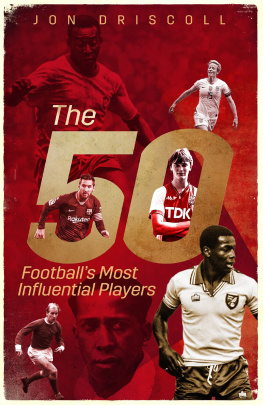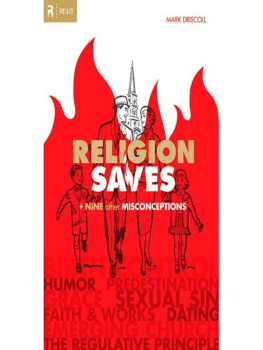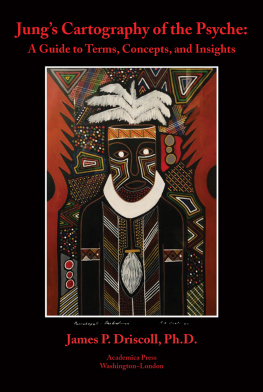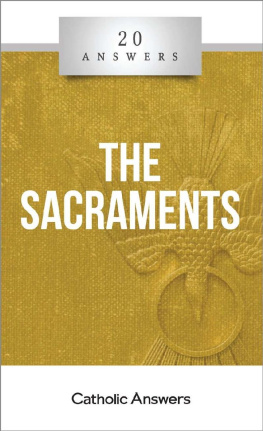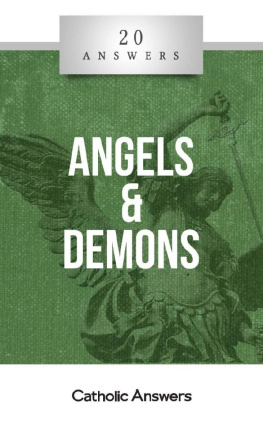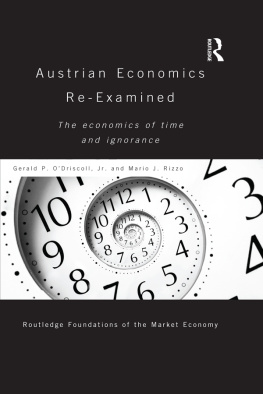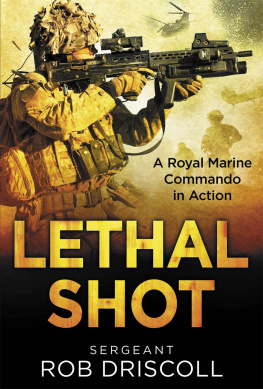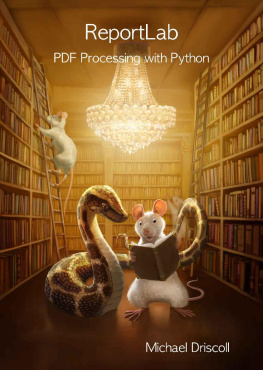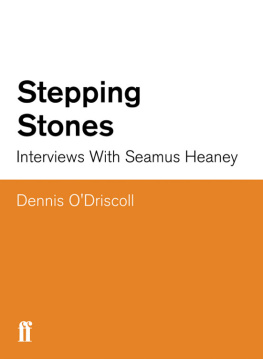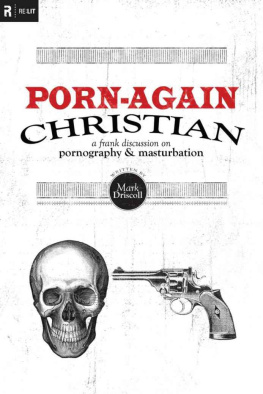Jon Driscoll - The Fifty
Here you can read online Jon Driscoll - The Fifty full text of the book (entire story) in english for free. Download pdf and epub, get meaning, cover and reviews about this ebook. year: 2020, publisher: Pitch Publishing, genre: Non-fiction. Description of the work, (preface) as well as reviews are available. Best literature library LitArk.com created for fans of good reading and offers a wide selection of genres:
Romance novel
Science fiction
Adventure
Detective
Science
History
Home and family
Prose
Art
Politics
Computer
Non-fiction
Religion
Business
Children
Humor
Choose a favorite category and find really read worthwhile books. Enjoy immersion in the world of imagination, feel the emotions of the characters or learn something new for yourself, make an fascinating discovery.
- Book:The Fifty
- Author:
- Publisher:Pitch Publishing
- Genre:
- Year:2020
- Rating:4 / 5
- Favourites:Add to favourites
- Your mark:
- 80
- 1
- 2
- 3
- 4
- 5
The Fifty: summary, description and annotation
We offer to read an annotation, description, summary or preface (depends on what the author of the book "The Fifty" wrote himself). If you haven't found the necessary information about the book — write in the comments, we will try to find it.
The Fifty — read online for free the complete book (whole text) full work
Below is the text of the book, divided by pages. System saving the place of the last page read, allows you to conveniently read the book "The Fifty" online for free, without having to search again every time where you left off. Put a bookmark, and you can go to the page where you finished reading at any time.
Font size:
Interval:
Bookmark:



First published by Pitch Publishing, 2020
Pitch Publishing
A2 Yeoman Gate
Yeoman Way
Durrington
BN13 3QZ
www.pitchpublishing.co.uk
Jon Driscoll, 2020
Every effort has been made to trace the copyright.
Any oversight will be rectified in future editions at the earliest opportunity by the publisher.
All rights reserved under International and Pan-American Copyright Conventions. By payment of the required fees, you have been granted the non-exclusive, non-transferable right to access and read the text of this e-book on-screen. No part of this text may be reproduced, transmitted, downloaded, decompiled, reverse-engineered, or stored in or introduced into any information storage and retrieval system, in any form or by any means, whether electronic or mechanical, now known or hereinafter invented, without the express written permission of the Publisher.
A CIP catalogue record is available for this book from the British Library
Print ISBN 9781785316906
eBook ISBN 9781785318139
--
Ebook Conversion by www.eBookPartnership.com
Dedication:
To the Driscolls
The history of football is made of players, not
managers. Real Madrid had Di Stfano and Pusks,
so they won. Milan had Van Basten and Gullit, so
they won. I dont think it was the managers who
made them win. It was the players.
Arsne Wenger, The Italian Job (Gianluca Vialli & Gabriele Marcotti)
WRITING THIS book has been an absolute pleasure; thank you for reading it. There were lot of books for me to read and videos to watch but they were all about football so its not exactly hard work.
Thanks to everyone at Pitch Publishing for the opportunity and for your support and guidance: Jane Camillin, Alex Daley, Andrea Dunn, Michelle Grainger, Graham Hales and Duncan Olner.
My wife, Alison, cast her expert historians eye over the first draft, which was invaluable. Thanks also to Graham Hunter and Jacqui Oatley for their expert opinion and to Guillem Balague, Philip Barker, Rob Carter, Dave Farrar, Terry Gibson, Mark Hirst, Gareth Jones, Sid Lowe and Rich Rowling for either asking or answering questions. And thanks to anyone who joined in the twitter polls and questions @driscollfc.
I MUST begin by thanking Neil MacGregor of the British Museum for his inspirational A History of the World in 100 Objects. It is a monumental work, but he makes one schoolboy error. Obviously, the best object invented by humans is the football, at least since the Olduvai stone chopping tool allowed us to crack open bones and suck out the protein-rich marrow, but somehow it doesnt make it into MacGregors 658-page masterpiece. The nearest thing is the ceremonial ballgame belt believed to be from Mexico, from between AD 100 and 500. The one in the British Museum was probably used for the pre-match build-up like the tracksuits players wear for the Champions League music. Later pictures show the players wearing something similar to reinforced pink Y-fronts, as they try to land a rubber ball in their opponents court, using only their buttocks, forearms and hips. Occasionally, the losers would be killed. Today, we have social media.
Despite his mistake, MacGregor does understand the importance of sport to humans: One of the striking characteristics of organised games throughout history is their capacity to transcend cultural differences, social divisions and even political unrest. Straddling the boundary between the sacred and the profane, they can be great social unifiers and dividers. There are few other things we care about so much in our society today. So why did he prefer the Statue of Ramesses II to Dixie Deans leather-panelled casey?
The history of football has been told through results, events, coaches and tactics, but it is a game made by players, and I wanted the players to tell the story. Some of The Fifty changed the world: without Charles Alcock football would be a different game, and Jean-Marc Bosman should be toasted by every super-rich modern star. Some left a stamp greater than their contribution on the pitch: Johan Cruyff was the first name on my team sheet. The three times European Player of the Year became a great coach and advocate for a style of football that dominates the top level of the sport still, after his death. I almost made the mistake of regarding Pel as simply a great footballer until I re-read his autobiography and realised the importance of a black man being the greatest games greatest star before Nelson Mandela was sent to prison or Martin Luther King made his I Have a Dream Speech.
Lily Parr was only one of Dick, Kerrs Ladies, who filled football grounds until the womens game was deliberately crushed by the FA, but I chose her not only because she was paid in Woodbine cigarettes but because she was an openly gay footballer decades before any male player dared to come out. Walter Tull was a war hero who was racially abused by football fans; over a century later, Raheem Sterling is fighting the same fight.
Some of the players were so good they wrote their own page in history: Matthews, Maradona and Messi set new standards. You will have to read Jimmy Hills chapter to decide whether I put him in just for laughs.
The list isnt perfect; it was like completing a moving puzzle. The Brits dominate early on, before I spread my gaze wider. It was painful to leave out some of the best-ever footballers, and Im sorry if I missed your favourite player.
HUMANS HAVE kicked balls at or through targets for thousands of years, but it took the enthusiasm of the Victorian Brits for rules-based sport to turn football into a game ready to conquer the world. As America and Australia demonstrate, it was by no means inevitable that the beautiful round-ball game known now as football (or soccer, if you prefer) would come to bestride the globe. That is where Charles Alcock comes in.
There is a reference to a game in which participants invade their opponents territory with a ball, played in Derby in AD 217. It was locals versus occupying Romans, although we dont know the score, or the rules. We do know that versions of football survived, always under threat of being banned by disgruntled authority.
The trouble was that it was a deadly business. Henry de Ellington was perhaps the first documented football fatality in 1280. This is what we know: Henry, son of William de Ellington, while playing at ball at Ulkham on Trinity Sunday with David le Keu and many others, ran against David and received an accident wound from Davids knife of which he died on the following Friday. They were both running to the ball, and ran against each other, and the knife hanging from Davids belt stuck out so that the point sheath struck in Henrys belly, and the handle against Davids belly. Henry was wounded right through the sheaf and died by misadventure.
In 1321 William de Spalding successfully persuaded the Pope to give him indemnity for killing his friend, also called William, in a football match. There were frequent attempts to ban the games, especially during times of war. In 1531 Henry VIII, no less, got in on the act:
Font size:
Interval:
Bookmark:
Similar books «The Fifty»
Look at similar books to The Fifty. We have selected literature similar in name and meaning in the hope of providing readers with more options to find new, interesting, not yet read works.
Discussion, reviews of the book The Fifty and just readers' own opinions. Leave your comments, write what you think about the work, its meaning or the main characters. Specify what exactly you liked and what you didn't like, and why you think so.

